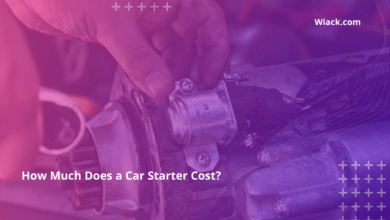How Long Does It Take to Buy a Car?

Did you know that the average car buyer spends around 15 hours researching, shopping, and purchasing their vehicle? This surprising statistic from a recent study highlights the complexity of the car-buying process. Whether you’re a first-time buyer or a seasoned car shopper, understanding the timeline and steps involved can help you navigate this important decision more efficiently.
In this comprehensive guide, we’ll explore the question: “How long does it take to buy a car?” We’ll break down the process into manageable steps, providing insights and tips to help you make an informed decision and potentially save time along the way.
Pre-Shopping Preparation
Before you set foot in a dealership or start browsing online listings, it’s crucial to lay the groundwork for a successful car-buying experience. This preparation phase can take anywhere from a few days to several weeks, depending on how much research you need to do and how familiar you are with the car market.
Determine Your Needs and Budget
The first step in answering “How long does it take to buy a car?” is to clearly define what you’re looking for and how much you can afford. This process typically takes 1-3 days but can be longer if you need to review your finances in detail.
What kind of car do you need?
Start by assessing your lifestyle and requirements. Consider factors such as:
- Family size
- Daily commute distance
- Cargo space needs
- Preferred features (e.g., safety technologies, infotainment systems)
- Fuel efficiency preferences
Make a list of must-have features and nice-to-have extras. This will help you narrow down your options and focus your search.
What is your price range?
Determining your budget is crucial when you buy a car. Consider not just the purchase price, but also ongoing costs such as:
- Insurance
- Fuel
- Maintenance and repairs
- Parking (if applicable)
A good rule of thumb is to spend no more than 10-15% of your monthly income on car-related expenses.
How much can you afford for a down payment?
A larger down payment can reduce your monthly payments and potentially help you secure better loan terms. Aim to save at least 10-20% of the car’s purchase price for a down payment.
What is your monthly payment budget?
Calculate how much you can comfortably afford to pay each month. Remember to factor in other debts and expenses to ensure you’re not overextending yourself financially.
Research and Compare Vehicles
Once you’ve determined your needs and budget, it’s time to start researching potential vehicles. This phase can take 3-7 days, depending on how many models you’re considering and how in-depth you want to go with your research.
Identify potential car models and trims
Based on your needs assessment, create a list of car models that fit your criteria. Don’t forget to consider different trim levels within each model, as features and pricing can vary significantly.
Read reviews and compare features
Dive into professional and user reviews of the cars on your list. Pay attention to:
- Performance ratings
- Comfort and interior quality
- Technology and infotainment systems
- Fuel economy
- Reliability scores
Use comparison tools on automotive websites to create side-by-side comparisons of your top choices.
Research safety ratings and reliability
Safety should be a top priority when you buy a car. Check the safety ratings from organizations like the National Highway Traffic Safety Administration (NHTSA) and the Insurance Institute for Highway Safety (IIHS).
For reliability, consult resources such as Consumer Reports and J.D. Power’s Vehicle Dependability Study.
Explore financing options and interest rates
Start researching financing options early in the process. This includes:
- Checking your credit score
- Exploring loan options from banks, credit unions, and online lenders
- Understanding current interest rates and how they might affect your monthly payments
Getting pre-approved for a car loan can give you a better idea of your budget and potentially strengthen your negotiating position at the dealership.
The Shopping Process
Now that you’ve done your homework, it’s time to start actively shopping for your new car. This phase of the car-buying process typically takes 1-2 weeks, but can be shorter or longer depending on factors such as local inventory and how quickly you make decisions.
Visit Dealerships and Test Drive
The in-person shopping experience is crucial when you buy a car. Plan to spend at least 2-3 days visiting dealerships and test driving vehicles.
Schedule appointments with multiple dealerships
Call ahead to schedule appointments at several dealerships. This ensures that the cars you want to see will be available and that a salesperson will be ready to assist you.
Test drive shortlisted vehicles
When you arrive at the dealership, focus on test driving the cars on your shortlist. During the test drive:
- Pay attention to how the car handles different road conditions
- Test all the features and controls
- Assess the comfort of the seats and driving position
- Listen for any unusual noises
- Check visibility from all angles
Don’t rush this process. A thorough test drive can take 30-45 minutes per vehicle.
Evaluate comfort, performance, and features
After each test drive, take some time to reflect on your experience. Consider:
- How comfortable were you in the car?
- Did the performance meet your expectations?
- Were all the features easy to use and understand?
- Can you see yourself driving this car for the next several years?
Take notes or use a rating system to help you compare vehicles objectively.
Negotiate Price and Financing
Once you’ve identified your preferred vehicle, it’s time to negotiate the price and finalize financing. This step can take anywhere from a few hours to several days, depending on how prepared you are and how flexible the dealership is willing to be.
Research fair market value for the chosen car
Before entering negotiations, arm yourself with knowledge about the fair market value of the car you want to buy. Use resources like Kelley Blue Book, NADA Guides, or Edmunds to determine a reasonable price range.
Negotiate the purchase price and trade-in value
When negotiating:
- Start with your researched fair market value
- Be prepared to walk away if the dealership isn’t willing to meet your target price
- Negotiate the purchase price separately from any trade-in or financing discussions
- Don’t be pressured into making a decision on the spot
If you’re trading in your current vehicle, research its value separately and negotiate that as part of the overall deal.
Secure financing with the best terms
If you haven’t already secured pre-approval for a loan, now is the time to finalize your financing. Compare the dealership’s financing offer with any pre-approvals you’ve received. Consider:
- Interest rates
- Loan terms (length of the loan)
- Any fees or additional costs
Don’t be afraid to negotiate these terms or to walk away if the dealership can’t match or beat your pre-approved offer.
Final Steps
You’re in the home stretch! The final steps of the car-buying process typically take 1-2 days to complete.
Finalize Paperwork and Complete Purchase
This is where you’ll sign on the dotted line and officially buy a car. Plan to spend 2-3 hours at the dealership to complete this process.
Review and sign loan documents
Carefully review all loan documents before signing. Pay attention to:
- The final purchase price
- Interest rate and loan term
- Any additional fees or charges
- Warranty information
Don’t hesitate to ask questions if anything is unclear.
Complete registration and insurance
You’ll need to register your new car and ensure it’s properly insured before driving it off the lot. The dealership will typically handle the initial registration, but you may need to provide proof of insurance.
Contact your insurance provider in advance to add the new vehicle to your policy or shop around for new coverage if needed.
Take delivery of the new car
Before driving away in your new car:
- Inspect the vehicle thoroughly to ensure it’s in the condition you agreed upon
- Have the salesperson walk you through all the car’s features and controls
- Ensure you have all necessary documents, including the owner’s manual and warranty information
Post-Purchase Considerations
Congratulations! You’ve successfully navigated the car-buying process. Here are a few final considerations to keep in mind:
Schedule regular maintenance
Familiarize yourself with the recommended maintenance schedule for your new car and plan accordingly. Regular maintenance can help ensure your vehicle remains reliable and retains its value.
Enjoy your new car!
Take some time to enjoy your new purchase. Go for a drive, explore all the features, and appreciate the effort you put into making this important decision.
In conclusion, the answer to “How long does it take to buy a car?” can vary widely depending on your preparation, decision-making speed, and external factors. On average, you can expect the entire process to take 2-4 weeks from start to finish. However, by following the steps outlined in this guide and being prepared at each stage, you may be able to streamline the process and potentially buy a car in as little as a week or two.
Remember, buying a car is a significant financial decision, so it’s important to take the time you need to feel confident in your choice. Don’t rush the process, but also don’t let it drag on unnecessarily. With careful planning and informed decision-making, you’ll be driving your new car home before you know it!
Get the latest car news, reviews, and prices at Wiack.com. Your one-stop destination for all things automotive.





